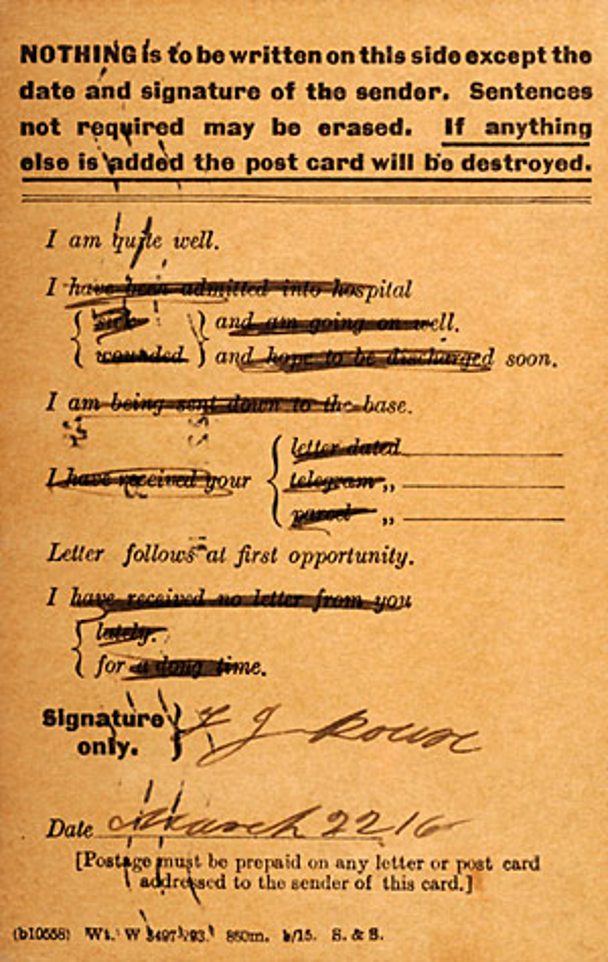When rich descriptions are difficult to bear, methods of attenuating description become attractive. They restrict the mode of expression to that which is permitted by whatever medium is devised for conveying 'standard' messages. We have become so used to this that we barely even notice it. Paul Fussell identified in "The Great War and Modern Memory", that the means by which descriptions are attenuated emerged from the most brutal and traumatic of events where it was barely possible to articulate how people felt. Before the first world war, there were no "forms" to fill in.
Today we have video, which has, in many ways, levelled the playing field of testimony: one does not have to be a great poet or writer to convey the complex reality of a situation - anyone can do it. Yet the form remains. How could one summarise the complexity were it not for the tick-boxes?
There is a better answer to this question than tick boxes. The form amplifies a particular set of descriptions as a series of choices. Whatever actual descriptions might be made by individuals, these somehow have to fit the provided descriptions. The interpretation of the fit to the provided descriptions adds a further layer of attenuation.
Institutions and governments fail because they fail to listen to the rich variety of descriptions made within the organisations they oversee. Instead, they collect "data" which they attenuate into "preferred descriptions", and implement policy according to their conclusions. Crisis emerges when the effects of policy are the production of more descriptions which are also ignored.
The military authorities did their best to ensure that richer descriptions of the soldier's experiences were not conveyed home, lest it lead to unrest or loss of morale. Fussell describes a letter sent by a young boy in a platoon which went:
Dear Mum and Dad, and dear loving sisters Rosie, Letty, and our Gladys, -
I am very pleased to write you another welcome letter as this leaves me. Dear Mum and Dad and loving sisters, I hope you keeps the home fires burning. Not arf. The boys are in the pink. Not arf. Dear Loving sisters Rosie, Letty, and our Gladys, keep merry and bright. Not arf.
Today our whole lives are ruled by forms, and even the scope for protesting the restrictions of the medium are curtailed. The best one can do is not fill it in. Such 'data gathering' processes have become part of normal life. We even conduct social research like this.
Fussell describes the "Form A. 2042" shown above. The Field Service Post Card was sent
with everything crossed out except "I am quite well" - immediately after a battle which relatives might suspect their soldiers had been in. Such were the hazards of occupying newly blown mine-craters that, according to George Coppard, "Before starting a twelve-hour shift in a crater, each man had to complete a field postcard for his next of kin, leaving the terse message "I am quite well" undeleted."Soldiers found ways of using the medium to convey messages that the cards were not meant to convey. Fussell notes:
the implicit optimism of the post card is worth noting - the way it offers no provision for transmitting news like "I have lost my left leg" or "I have been admitted into hospital wonded and do not expect to recover". Because it provided no way of saying "I am going up the line again" its users had to improvise. Wilfred Owen had an understanding with his mother that when he used a double line to cross out "I am being sent down to base" he meant he was at the front again. (Fussell, "The Great War and Modern Memory", p185)Fussell claims that the Field Service Post Card is the first "form": "It is the progenitor of of all modern forms on which you fill in things or cross out things or check off things, from police fraffic summonses to "questionnaires" and income-tax blanks. When the Field Service Post Cardwas devised, the novelty of its brassy self-sufficiency, as well as its implications about the uniform identity of human creatures, amused the sophisticated and the gentle alike, and they delighted to parody it..."
Today we have video, which has, in many ways, levelled the playing field of testimony: one does not have to be a great poet or writer to convey the complex reality of a situation - anyone can do it. Yet the form remains. How could one summarise the complexity were it not for the tick-boxes?
There is a better answer to this question than tick boxes. The form amplifies a particular set of descriptions as a series of choices. Whatever actual descriptions might be made by individuals, these somehow have to fit the provided descriptions. The interpretation of the fit to the provided descriptions adds a further layer of attenuation.
Institutions and governments fail because they fail to listen to the rich variety of descriptions made within the organisations they oversee. Instead, they collect "data" which they attenuate into "preferred descriptions", and implement policy according to their conclusions. Crisis emerges when the effects of policy are the production of more descriptions which are also ignored.


1 comment:
After half a day filling in travel forms, this was extra interesting!
Post a Comment